
Coronary Artery Scan: What It Shows and Why It Matters for Prevention
Coronary Artery Scan: What It Shows, Who Needs It, and
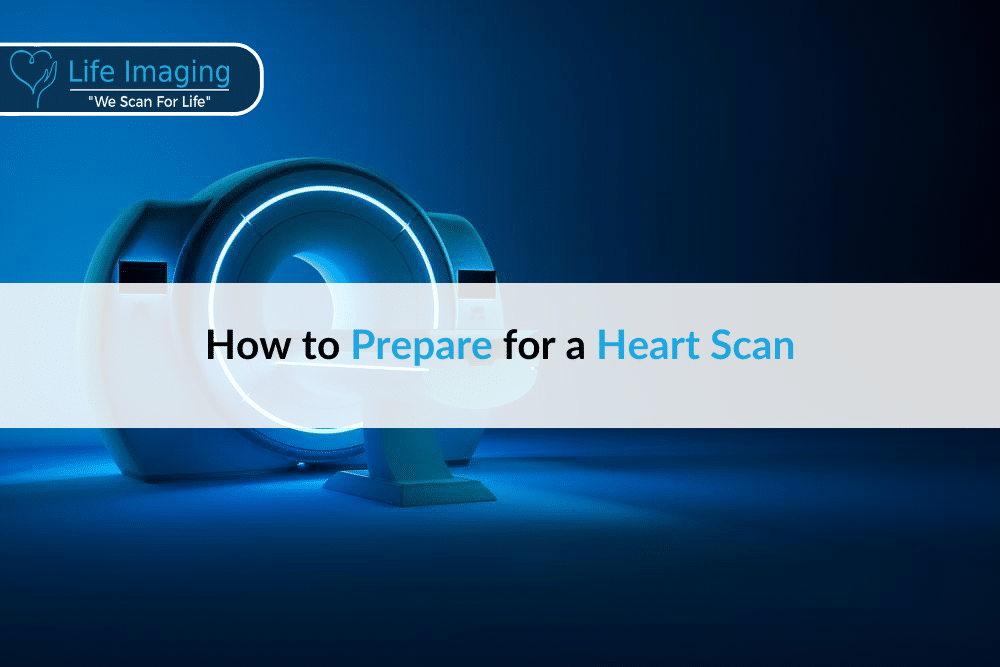
Heart disease remains a leading cause of mortality in the United States, with early detection playing a crucial role in saving lives. If you reside in Miami, one of the best ways to detect heart disease early is by undergoing a heart scan at Life Imaging Fla. This imaging center is dedicated to the early detection of heart disease and cancer, utilizing advanced technology to provide clear and accurate results.
Preparing for a heart scan helps ensure the process goes smoothly and that the results are as accurate as possible. Whether it’s your first time or you’ve had scans before, knowing what to expect can ease your mind and help you prepare both physically and mentally. This article will guide you through every step you need to take to prepare for a heart scan, from scheduling the appointment to understanding the procedure itself.
Understanding the significance of a heart scan is the first step toward proactive heart health. Heart scans help identify any issues early on, which means you can start treatments sooner and increase your chances of a better outcome. By following the guided preparations, you can make sure your scan is effective and contributes valuable information to your healthcare plan. So, let’s dive in and learn how to prepare for a heart scan in Miami, ensuring you get the most accurate and beneficial results possible from your visit to Life Imaging Fla.
A heart scan, or coronary calcium scan, is an imaging test that helps detect plaque buildup in the coronary arteries. This scan provides detailed images of the arteries, showing if there is any calcified plaque, which is a sign of coronary artery disease (CAD). Knowing the extent of plaque buildup early can help manage and prevent severe heart conditions, including heart attacks.
Early detection of heart disease can save lives. If plaque is detected early, lifestyle changes and medical treatments can be employed to manage the risk and prevent severe outcomes. By catching these issues early, you can take control of your heart health and make informed decisions about your care.
Heart scans are particularly useful for individuals with risk factors such as a family history of heart disease, high blood pressure, high cholesterol, smoking, diabetes, or obesity. Middle-aged adults and older individuals are also more prone to heart disease and might benefit significantly from regular heart scans.
Scheduling your heart scan at Life Imaging Fla is the first step. Knowing the process makes it easier and ensures you’re well-prepared for your appointment.
To schedule your heart scan, contact Life Imaging Fla directly. The staff will guide you through the process, answering any questions you might have. They will set up a convenient appointment time and provide any necessary instructions.
Bring the necessary documents to your appointment, including identification, insurance information, and any medical records related to your heart health. Having these documents on hand streamlines the process and ensures that the imaging center has all the information needed for an accurate assessment.
Try to schedule your heart scan at a time when you can remain calm and relaxed before and after the procedure. Stress can impact your heart’s condition and the accuracy of the scan. Plan to arrive early to give yourself time to settle in.
Proper preparation ensures accurate results from your heart scan. Follow these simple steps to get your body ready for the procedure.
You may be asked to avoid eating or drinking for a few hours before your heart scan. The fasting period typically ranges from 4 to 6 hours. This helps provide clearer images and more accurate results.
Continue taking your regular medications unless instructed otherwise by the staff at Life Imaging Fla. Inform the imaging center about all the medications you are currently taking, including over-the-counter drugs and supplements. They will give you specific instructions if any medications need to be paused.
Refrain from consuming caffeine and smoking on the day of your appointment. Both caffeine and nicotine can affect your heart rate and potentially interfere with the accuracy of the scan.
Knowing what to expect during your heart scan can help ease any anxieties and ensure the procedure goes smoothly.
When you arrive at Life Imaging Fla, you will check in at the front desk. The staff will ask for your identification and any documents related to your health. Once checked in, you may be asked to change into a gown.
You will lie on a table that slides into a CT scanner. The scanner takes detailed images of your heart and coronary arteries. The procedure is painless and usually takes about 10 to 15 minutes. You will need to lie still during the scan, and you may be asked to hold your breath for short periods to get clear images.
Once the scan is complete, you can go about your day as usual. There’s no recovery time needed. Your images will be reviewed by a specialist, and the results will be shared with you and your healthcare provider.
After your scan, understanding the results is crucial for taking the next steps toward better heart health.
The results of your heart scan will show the amount of calcified plaque in your coronary arteries. This is often reported as a calcium score. A score of zero means no plaque is detected, while higher scores indicate greater amounts of plaque and, consequently, a higher risk of CAD.
Review the results with your healthcare provider to understand what they mean for your health. They may recommend lifestyle changes, medications, or further tests based on your calcium score and overall risk factors.
Follow the recommendations provided by your healthcare provider. This might include adopting a healthier diet, exercising more, quitting smoking, or taking medications to manage cholesterol and blood pressure. Regular follow-up scans might be suggested to monitor any changes over time.
Living a heart-healthy lifestyle can significantly reduce your risk of heart disease. Here are some lifestyle changes to consider after your heart scan.
Adopt a diet rich in fruits, vegetables, whole grains, lean proteins, and healthy fats. Avoid foods high in saturated fats, trans fats, cholesterol, and sodium. Eating heart-healthy foods helps maintain lower cholesterol levels and blood pressure, reducing plaque buildup.
Engage in regular physical activity, such as walking, swimming, or cycling. Aim for at least 30 minutes of moderate exercise most days of the week. Exercise helps strengthen the heart muscle, manage weight, and reduce stress.
Quit Smoking
If you smoke, quitting is one of the best things you can do for your heart. Smoking significantly increases the risk of heart disease and stroke. Seek support from healthcare professionals or smoking cessation programs to help you quit.
Find ways to manage stress, such as practicing relaxation techniques, mindfulness, or yoga. Chronic stress can negatively impact heart health, so finding healthy coping mechanisms is essential.
Visit your healthcare provider regularly to monitor your heart health. Regular check-ups allow for early detection of any changes, ensuring timely interventions and better health outcomes.
By following these steps and understanding how to prepare for and interpret your heart scan, you can take charge of your heart health and reduce your risk of heart disease. A proactive approach to heart health can lead to a longer, healthier life.
Selecting the appropriate heart scan center is a crucial step in ensuring you receive high-quality care and accurate results. There are several factors to consider when choosing where to get your heart scan in Miami.
Look for a heart scan center that is accredited and certified by reputable organizations. Accreditation ensures the facility meets high standards for quality and safety. It also means that the staff and technicians are well-trained and knowledgeable.
Ensure the center uses state-of-the-art technology and equipment for heart scans. Advanced imaging tools provide clearer images and more accurate results. Ask about the types of CT scanners and other equipment used at the center.
The expertise of the medical staff is essential. Choose a center with experienced radiologists and technicians who specialize in heart scans. The staff should be able to interpret results accurately and provide valuable insights into your heart health.
While heart scans are effective in detecting coronary artery disease, it’s important to understand the risks and limitations associated with the procedure.
Heart scans involve a small amount of radiation exposure. While the risk from a single scan is low, repeated exposure over time can increase the risk of radiation-related health issues. Discuss any concerns with your healthcare provider and weigh the benefits against the risks.
Like any medical test, heart scans can produce false positives or negatives. A false positive indicates the presence of disease when there isn’t any, leading to unnecessary anxiety or further testing. A false negative indicates no disease when there is, potentially missing, a crucial diagnosis. Understanding these limitations helps you make informed decisions about your health.
Heart scans are valuable for detecting plaque but aren’t standalone diagnostic tools. They provide information that must be considered alongside other factors, such as medical history, risk factors, and other tests. Always discuss your heart scan results in the context of your overall health with your healthcare provider.
Getting a heart scan can be an anxiety-inducing experience. Being mentally prepared can help alleviate stress and ensure a smoother process.
Educate yourself about the heart scan procedure. Knowing what to expect can reduce anxiety and help you feel more in control. The scan is non-invasive and painless, which is reassuring.
Practice relaxation techniques such as deep breathing, meditation, or visualization to calm your mind. These techniques can help you stay relaxed before and during the scan, leading to clearer results.
Talk to friends or family members about your upcoming scan. Having a support system can provide emotional comfort and reduce feelings of nervousness. Consider having someone accompany you to the appointment for additional support.
Following up after your heart scan is crucial for ongoing heart health management. Knowing what steps to take after receiving your results ensures you stay on top of your heart health.
Schedule an appointment with your healthcare provider to review the results of your heart scan. Your doctor can explain the findings, discuss their implications, and recommend any further tests or treatments needed.
Based on your heart scan results, your doctor may recommend lifestyle changes to improve your heart health. These changes might include dietary adjustments, increased physical activity, stress management, or quitting smoking. Implement these changes diligently for better heart health.
Your doctor might suggest regular heart scans to monitor any changes over time. Consistent monitoring helps in early detection of any developments, allowing for timely interventions. Follow your doctor’s recommendations for follow-up scans and check-ups.
Heart scans play a significant role in long-term health management by providing crucial insights into your heart health.
Detecting heart disease early allows for timely interventions, which can prevent the progression of the disease. Early intervention includes lifestyle changes and medications that can significantly reduce the risk of complications like heart attacks and strokes.
Heart scan results provide valuable information that aids in making informed healthcare decisions. Knowing the state of your coronary arteries helps you and your healthcare provider tailor a personalized care plan that addresses your specific needs and risks.
Undergoing a heart scan and receiving a clear understanding of your heart health can provide peace of mind. Knowing your coronary arteries’ condition helps reduce anxiety and empowers you to take proactive steps in managing your heart health.
Coordinating your heart scan with other health screenings can enhance your overall health assessment and management.
Combining a heart scan with other screenings, such as blood tests, cholesterol checks, and diabetes screenings, provides a comprehensive evaluation of your overall health. This holistic approach helps in identifying any additional risk factors that need to be addressed.
Coordinate your heart scan appointment with other scheduled health screenings to streamline the process. This reduces the number of visits to healthcare facilities and allows for more efficient management of your health.
Work with your healthcare provider to develop an integrated health plan that encompasses all aspects of your health screenings. This ensures a coordinated approach to managing your heart health along with other health concerns.
Understanding the financial aspect of heart scans helps you plan better and ensures there are no surprises.
Check with your health insurance provider to see if heart scans are covered under your plan. Coverage varies among providers, and knowing what’s included helps you prepare for any out-of-pocket expenses.
If your insurance does not cover the heart scan, inquire about the out-of-pocket costs at the imaging center. Knowing the costs upfront allows you to plan your budget accordingly.
Ask the imaging center about available payment options, including payment plans or discounts. Many centers offer flexible payment options to make the procedure more accessible.
Living in Miami offers plenty of opportunities to embrace a heart-healthy lifestyle, enhancing the benefits of your heart scan.
Miami’s warm climate and beautiful scenery make it ideal for outdoor activities like walking, jogging, biking, and swimming. Engage in regular physical activities that your heart enjoys and keep your body moving.
Miami’s diverse culinary scene offers plenty of healthy eating options. Choose restaurants that offer heart-healthy meals and visit local farmers’ markets to stock up on fresh fruits, vegetables, and lean proteins.
Take advantage of community resources such as health clubs, fitness classes, and wellness programs. Joining a community of like-minded individuals can provide motivation and support for maintaining heart health.
Leveraging technology can enhance the management of your heart health, providing tools and resources to keep you on track.
Use health apps to track your diet, exercise, and heart health metrics. Many apps offer personalized recommendations, reminders, and progress tracking to help you stay focused on your heart health goals.
Consider using wearable devices like fitness trackers and smartwatches to monitor your heart rate, activity levels, and sleep patterns. These devices provide real-time data and insights into your daily habits, helping you make informed decisions.
Access online resources for information on heart health, healthy recipes, exercise routines, and stress management techniques. Reliable websites offer valuable tips and guidance to support your heart health journey.
Staying informed about heart health advancements, research, and tips helps you make the best decisions for your well-being.
Keep up-to-date with the latest heart health news and research by following reputable health websites, journals, and news outlets. Staying informed helps you understand new developments and emerging trends in heart health.
Attend heart health awareness events, seminars, and workshops in your community. These events provide valuable knowledge and tools to help you maintain and improve your heart health.
Consider enrolling in online courses or programs focused on heart health and wellness. Continuing education empowers you with the knowledge and skills to take proactive steps toward a healthier heart.
By understanding these steps and following through with them, you can better prepare for your heart scan and take control of your heart health. Being proactive and informed ensures that you’re doing everything possible to maintain a healthy heart and prevent disease.
Integrating Heart Scans into Annual Health Check-Ups
Incorporating heart scans into your annual health check-ups can be a proactive way to monitor your heart health regularly. This practice helps in early detection and timely intervention of any potential heart issues.
Annual check-ups provide a comprehensive overview of your health. Including a heart scan adds valuable information about your coronary artery health, giving your doctor a complete picture. This practice can lead to personalized health plans tailored specifically to your needs.
Speak with your healthcare provider about adding a heart scan to your annual check-up routine. Your doctor can give you advice on the best time to schedule the scan and explain how it fits into your overall health plan. Open communication ensures you get the most benefit from the procedure.
Regular heart scans help track changes in your coronary arteries over time. By comparing the results year after year, you can see the impact of lifestyle changes and interventions, making it easier to adjust your health plan as needed.
It’s natural to have concerns about undergoing a heart scan. Addressing these common concerns can help you feel more comfortable and informed about the procedure.
A heart scan is non-invasive and painless. You will lie on a table while a CT scanner takes pictures of your heart and coronary arteries. The process takes only about 10 to 15 minutes, and you won’t feel any discomfort.
Heart scans are highly accurate in detecting calcified plaque in the coronary arteries. While no medical test is perfect, the detailed images provided by the CT scanner are reliable and can help identify potential heart issues early.
If your heart scan shows calcified plaque, your doctor will discuss the results with you and recommend the next steps. This might include lifestyle changes, medications, or further tests. Remember, early detection allows for timely intervention and better health outcomes.
Understanding the financial aspects of a heart scan helps you plan better and reduces any financial stress associated with the procedure.
Check with your health insurance provider to see if heart scans are covered under your plan. Understanding your coverage ensures you know what to expect in terms of costs. If your insurance covers the scan, ask about any co-pays or deductibles.
If your insurance doesn’t cover heart scans, find out the out-of-pocket cost at the imaging center. Knowing the cost in advance allows you to budget accordingly. Some centers may offer payment plans to make the procedure more affordable.
Some imaging centers offer discounts for cash payments or group rates if multiple family members are getting scans. It’s worth asking about any available discounts to save on costs.
The day of your heart scan doesn’t have to be stressful. Simple steps and planning can make the entire process smooth and easy.
Plan to arrive at the imaging center at least 15 minutes before your scheduled appointment. This gives you time to check in, fill out any necessary paperwork, and relax before the procedure. Rushing can increase anxiety, so give yourself plenty of time.
Wear comfortable clothing on the day of your heart scan. You may be asked to change into a gown for the procedure, so avoid wearing tight or complicated outfits. Simple, loose-fitting clothes make the process easier.
Consider bringing a friend or family member with you for support. Having someone with you can provide comfort and help you stay relaxed. They can also help with any logistics, such as driving you to and from the appointment.
Getting a heart scan can significantly influence your future health decisions. The insights gained from the scan help shape your approach to maintaining heart health.
Based on your heart scan results, you and your doctor can create a personalized health plan. This plan might include dietary changes, exercise routines, and medication to manage any detected plaque effectively. Personalizing your health plan ensures it meets your specific needs.
Use the information from your heart scan to set realistic health goals. Whether it’s lowering cholesterol, increasing physical activity, or losing weight, setting clear goals helps you stay focused and motivated on your heart health journey.
Regular heart scans allow you to monitor your progress and make adjustments to your health plan as needed. Consistent monitoring helps in fine-tuning your health strategy to keep your heart in the best condition possible.
Taking advantage of community resources in Miami can enhance your heart health journey by providing support and motivation.
Miami offers various local health programs focused on heart health. These programs provide valuable information, resources, and support for maintaining a healthy heart. Participating in these programs helps you stay informed and engaged in your health.
Join fitness classes or groups that focus on heart-healthy activities like walking, yoga, or swimming. Exercising with others can make physical activity more enjoyable and provide a sense of accountability and motivation.
Look for heart health support groups in your community. These groups offer a platform to share experiences, gain support, and learn from others facing similar health challenges. Connecting with others can provide emotional support and practical tips for heart health management.
A heart-healthy diet plays a crucial role in maintaining a healthy heart and preventing disease. Understanding what to eat and what to avoid is key to a heart-healthy lifestyle.
Incorporate plenty of fruits and vegetables into your diet. These foods are rich in vitamins, minerals, and antioxidants that support heart health. Aim for a variety of colors and types to ensure you get a broad range of nutrients.
Choose whole grains like oatmeal, brown rice, and whole wheat bread over refined grains. Whole grains provide fiber, which helps lower cholesterol and supports a healthy heart.
Include healthy fats in your diet from sources like avocados, nuts, seeds, and olive oil. These fats support heart health by reducing bad cholesterol levels. Avoid trans fats and limit saturated fats to protect your heart.
Opt for lean protein sources such as fish, poultry, beans, and legumes. These proteins provide essential nutrients without the unhealthy fats found in red and processed meats. Fish rich in omega-3 fatty acids, like salmon and mackerel, are particularly beneficial for heart health.
Simple lifestyle changes can have a big impact on your heart health. Here’s how to make positive changes that support a healthy heart.
Aim to get at least 30 minutes of moderate exercise most days of the week. Physical activity strengthens the heart, improves circulation, and helps maintain a healthy weight. Choose activities you enjoy, whether it’s dancing, cycling, or walking the dog.
Drinking plenty of water supports overall health, including heart health. Staying hydrated helps maintain proper circulation and supports the function of other bodily systems.
Adequate sleep is essential for heart health. Aim for 7 to 9 hours of sleep each night. Poor sleep can increase the risk of developing high blood pressure, obesity, and heart disease.
Chronic stress can negatively impact heart health. Practice stress management techniques such as deep breathing, mindfulness, or hobbies like reading and gardening. Finding healthy ways to cope with stress promotes better heart health.
By following these guidelines and understanding the importance of preparation, you can ensure that your heart scan at Life Imaging Fla is as effective and stress-free as possible. Stay proactive in your heart health journey to enjoy a healthier, happier life.
Heart health is essential for a long and healthy life. By understanding the benefits and preparing effectively for a heart scan, you are taking a critical step in managing your heart health. From selecting the right heart scan center to understanding the procedure and its implications, you are now equipped with the knowledge to make informed decisions about your heart health.
At Life Imaging Fla, we are dedicated to providing high-quality heart scan services in Miami. Our state-of-the-art technology, experienced staff, and personalized care make us a top choice for heart scans. By choosing Life Imaging Fla, you take a proactive approach to detecting and managing potential heart issues before they become serious.
Don’t wait until it’s too late to take care of your heart. Early detection through a heart scan can save lives. Schedule your heart scan with Life Imaging Fla today and take charge of your heart health. Visit our website to learn more about our services and book your appointment. Your heart will thank you.

Coronary Artery Scan: What It Shows, Who Needs It, and
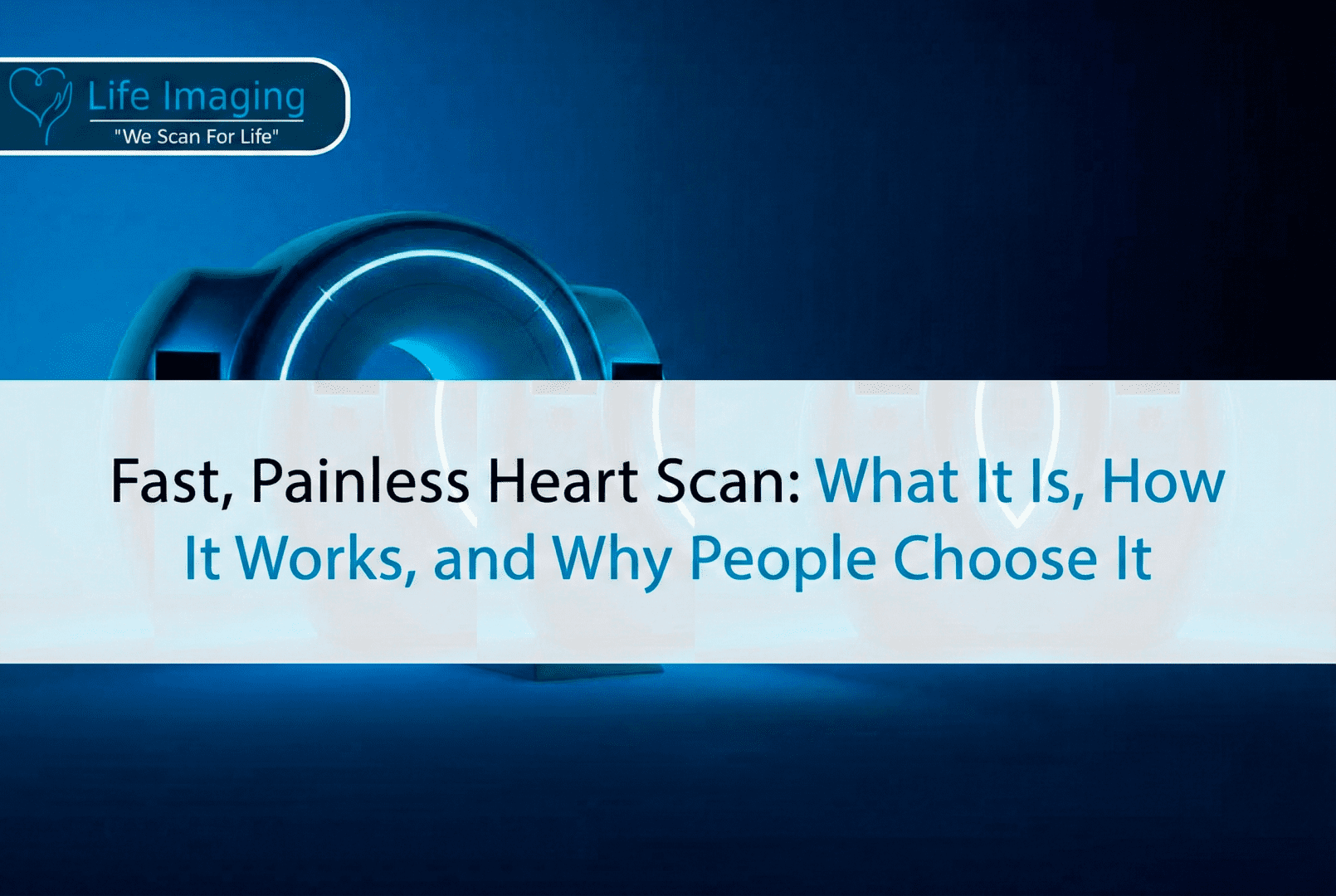
Fast and Painless Cancer Scan: What It Really Means PREVENTIVE
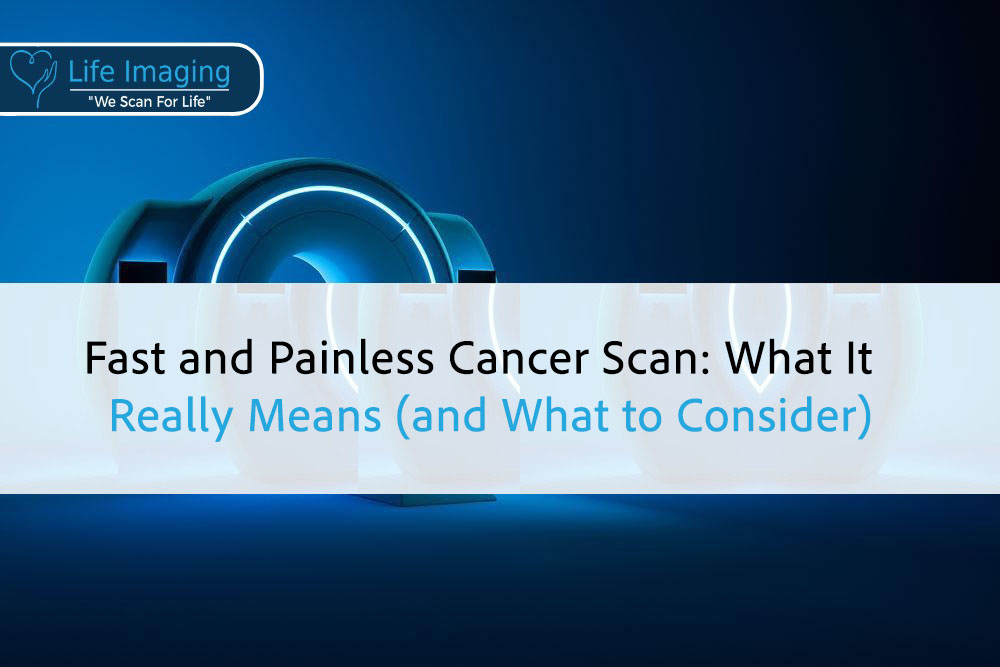
Fast and Painless Cancer Scan: What It Really Means (and
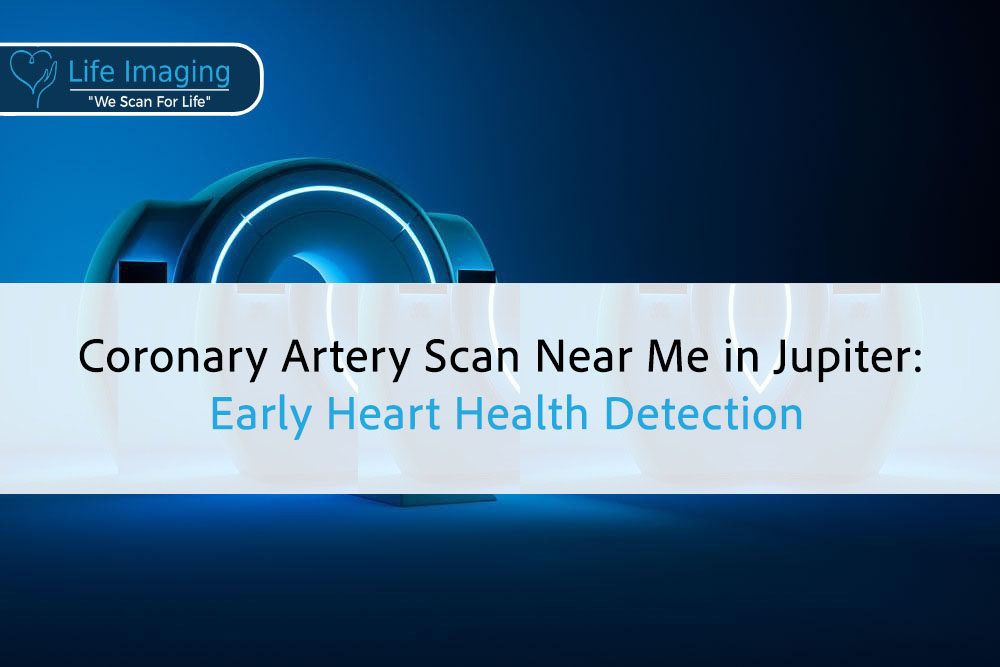
Introduction Your heart works hard every second of the day,
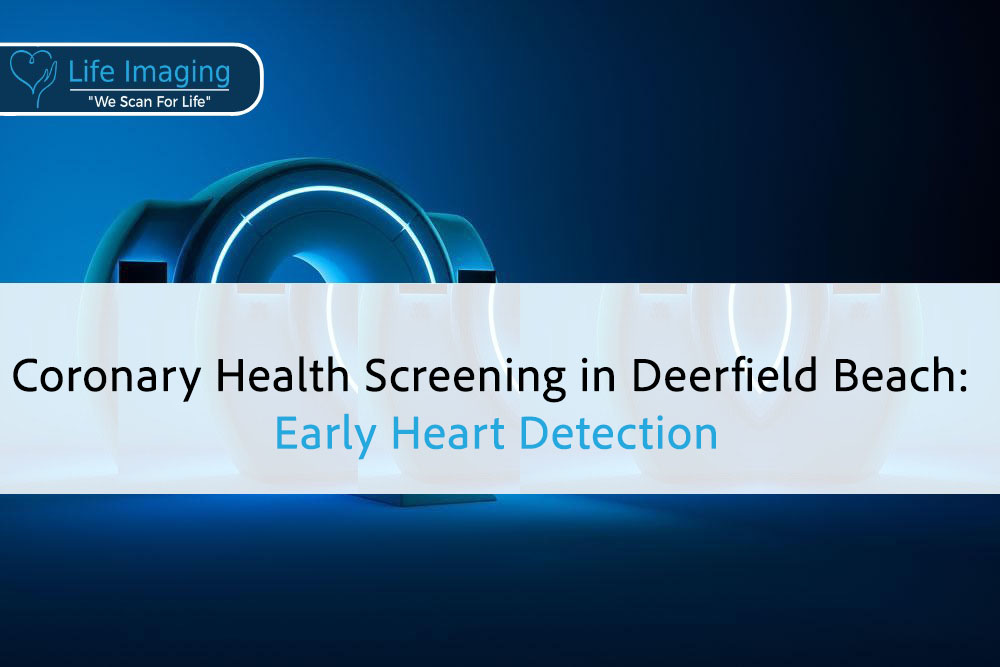
Introduction Your heart works around the clock, but changes inside
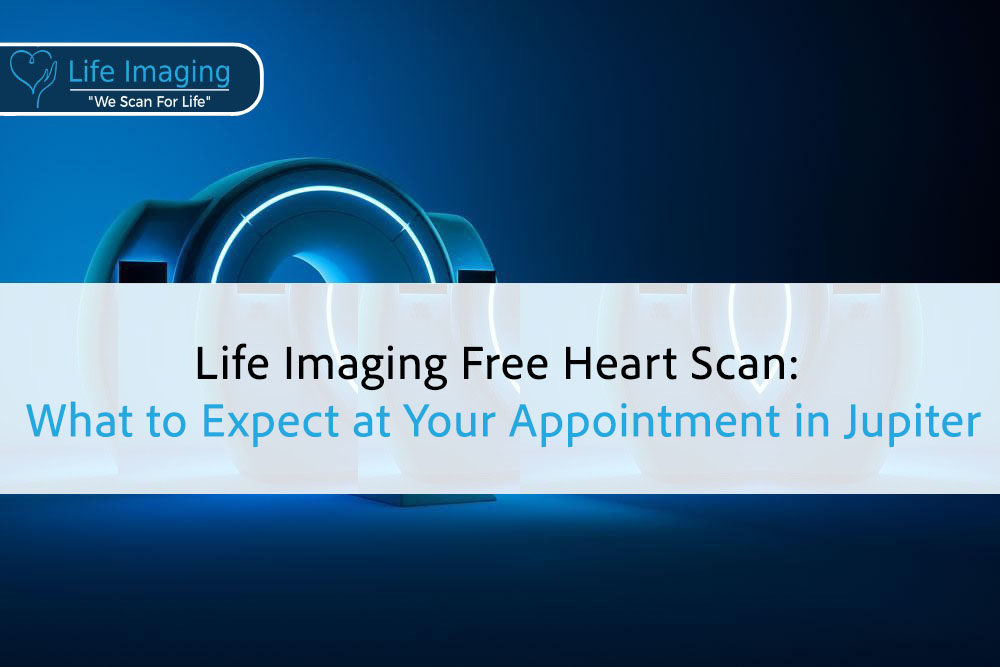
Introduction Your heart works nonstop, often without a single complaint.

* Get your free heart scan by confirming a few minimum requirements.
Our team will verify that you qualify before your scan is booked.
Copyright © 2025 Life Imaging – All Rights Reserved